Thank you for your query.
You may be able to find the answer quickly to your question at our FAQs below. We’ve grouped our most popular questions under main headings. Click on any of the questions for further information.
How to become a TRA member?
I’d like to become a TRA member. How do I join?
Thank you for your interest in joining our wonderful volunteer community!
If you’re aged 18 years and above, register using the adult twin registration form.
Twins under 18 years of age can be registered by a parent or guardian using the junior registration form. Membership is free!
Can non-identical and opposite sex twins join? What age? What about if I have a pre-existing medical condition?
Twins of any age can join us – from 0-100+ years old! They can be registered as soon as they are born (and up to 18 years old) by their parents. Adult twins (18+ year old) register themselves. It doesn’t matter if you are identical or non-identical, same-sex or opposite sex twins, well or have health conditions – all are welcome to join us.
I’m not sure about becoming a member. What is involved?
Find out more about becoming a TRA member here
Existing members
My email address, name, phone number (or other details) have changed. How do I update my member details?
You can easily update your contact details here
Research studies
When will I be invited to join a study?
When a new study begins, TRA emails invitations to members who might be eligible to participate so they can decide if they would like to be involved. You might get a study invitation within a few months however sometimes it can take a few years. You can check out your eligibility for our current studies
Are the details of my membership and study participation kept private?
Information concerning TRA members is kept strictly confidential; personal details are NEVER given to researchers or any other party without the express permission and consent of the individual member. Learn more here
I’m part of a study and have some questions about it. Who do I contact?
Please first check the information on this page where our currently recruiting studies are listed. If you still have a question, please email us
DNA/zygosity testing
I’m not sure if my twins are identical or fraternal. How can I find out for sure?
If you have a boy and a girl it’s easy, they will be non-identical or dizygotic (with very rare exceptions). If they are of the same sex and definitely share one placenta it’s also easy, they are almost always identical or monozygotic. If they are of the same sex and each had a placenta, or if there is doubt about the type of placenta, then they could be identical (monozygotic) or fraternal (dizygotic). The best way to be certain is to do a simple pain-free zygosity test, using samples of DNA from the babies (such as swabs taken from the inside of their cheeks).
Where to access zygosity testing?
TRA has previously formed collaborations with zygosity testing providers to offer discounted rates for TRA members. Unfortunately, we do not have any discounts currently available. We are working on this and hope to provide discounted zygosity testing again soon. Stay tuned!
Support services
Looking for practical support and services, twin specific psychologists and mental health advice, 24-hour phone services, online community groups and much more?
Visit here
About twins
My twin and I are identical, but we look different and have different health issues. How can twins who share the same genes be so different?
Article being updated. Please return to the page soon.
Twin pregnancy and parenting
I’m expecting twins. Do you have any information about twin pregnancy?
Firstly, congratulations on this exciting news! We have free resources available about twin pregnancy and birth, and what to expect when your babies go home. Request access to the website via this link
My twins each had their own placenta. Does this mean they are fraternal twins (dizygotic)?
Not necessarily as approximately a third of monozygotic (identical) twins each have their own placenta. Learn more here
Are twins hereditary?
While there has not been any research to show that identical twinning can be inherited, non-identical twinning can be. Learn more here
What is Twin to Twin Transfusion Syndrome?
Twin-to-Twin Transfusion Syndrome (TTTS) affects approximately 15% of identical twins that share a placenta. The condition occurs when blood from one twin (commonly called “the donor”) is transfused into the other twin (commonly called “the recipient”) via blood vessels in the shared placenta. It can also occur in triplet or quadruplet pregnancies in which foetuses share a placenta. Learn more
What are MCMA/MOMO twins (or MCDA/MODI or DCDA/DIDI twins)?
See here for an explanation of the different terms.
Still have a question? Please email us at info@twins.org.au
MAILING ADDRESS
Twins Research Australia
Centre for Epidemiology & Biostatistics
Melbourne School of Population & Global Health
The University of Melbourne
Level 3, 207 Bouverie Street
Victoria, Australia 3010
Research enquiries
Jessica Tyler
Research Coordinator and Liaison
Email: jess.tyler@unimelb.edu.au
Media contact
Lynette Walker
Marketing Communications Coordinator
Email: lynettew@unimelb.edu.au
Member support
Email: info@twin.org.au
We are a small team with our focus on conducting as many research studies as possible to find cures faster. The nature of our work means emailing is the best way to contact us. We do provide a freecall number 1800 037 021 but we monitor this irregularly. We ask our supporters to only use this after (1) checking FAQs above and (2) emailing us with your query. Thank you for your understanding and patience.

